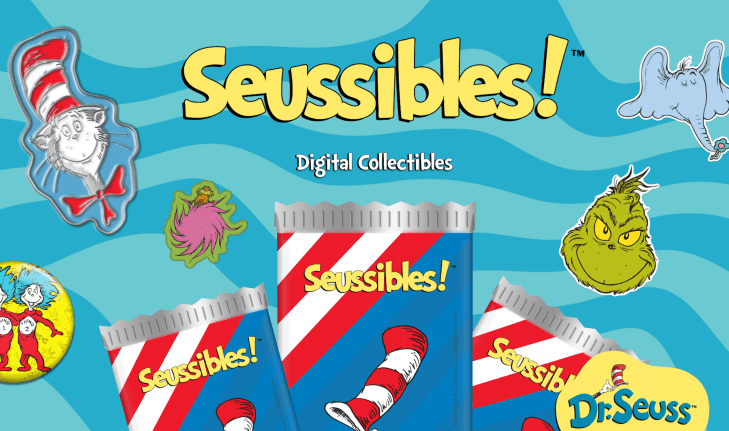This Dapper Labs-backed company is turning Dr. Seuss characters into NFT trading cards

This Dapper Labs-backed company is turning Dr. Seuss characters into NFT trading cards
Back in 2012, a Brooklyn-based mobile apps development startup was hired to do a job by the 83-year-old trading card company Topps. For that outfit’s president, Erich Wood, a UCLA graduate who’d studied economics and loved trading cards, the opportunity not only sounded fun but would change his trajectory.
At the time, Topps had a licensing agreement with Major League Baseball, the National Football League, and Star Wars, and Wood’s tiny outfit — discovered by Topps’s then head of digital — was brought in to create the first digital trading card platforms for all three.
The cards took off immediately. In fact, things went so well, according to Wood, that he and that digital chief, Michael Bramlage, decided in 2016 to partner on their own digital collectibles company, Quidd.
Fast forward to today and Bramlage is still CEO of Quidd, which was acquired in 2019 by Animoca Brands and now operates as a standalone subsidiary.
Meanwhile, Wood has quietly been building a new, 13-person business called Tibles that just raised $3 million in seed funding led by Cadenza Ventures, with participation from earlier backer Dapper Labs (whose “NBA Top Shot” took the world by storm earlier this year).
CoinFund and Warburg Serres, which along with Dapper, provided Trible with $1.19 million in seed funding earlier this year, also returned for the round.
Interestingly, Tibles seems not so unlike Quidd, though Quidd still stores its collectibles “off chain,” meaning on centralized servers, whereas Tibles is creating an NFT marketplace that runs exclusively on Flow, the blockchain developed by Dapper. (Quidd says on its homepage that it is “coming soon to the blockchain.”)
Tibles is also focusing exclusively on pop culture and entertainment brands, whereas Quidd also sells sports collectibles.
Perhaps most important of all, suggests Wood, unlike Quidd and another digital collectibles marketplaces, Tibles isn’t simply digitizing existing images and turning them into NFTs. The plan instead is to work with brands to create an ecosystem with original licensed art, a trading experience, and community.

Its ultimate aim is to make the digital collecting experience as authentic as a physical one, says the company.
Whether it works out as planned remains to be seen, but as a starting point, Tibles just took the wraps off a partnership between itself, Dr. Seuss Enterprises, and Dapper Labs to create “Seussibles,” which invites fans of Theodor Geisel to own NFTs of his characters — including the Lorax, the Grinch, and Horton the Elephant — and to interact with other fans.
As Wood explains it, the NFTs come in blind five-packs that are reminiscent of Pokémon cards; these cards or “stickers” can then be viewed in a “sticker book” where other users can see each others’ collections.
There is also a clubhouse area where fans can socialize, and a trading area where they can swap holdings.
Right now, all the packs are priced the same; none are “limited edition” NFTs, but you can imagine that Tibles will be looking at what people are trading to make informed choices about which characters might be more valuable to fans than others.
As for the startup’s road map, hiring is a priority, unsurprisingly. Tibles will also be working closely with Dapper to obtain more licensing agreements so that it can generate more content. (Asked for more specifics, Wood notes the the “licensing roadmap can be a long one” and “filled with with secrecy.”)
On the development side, Wood says the plan is fairly straightforward. Tibles is just “very focused on delivering the user experience [so that] anybody can people can buy stuff as easily as they might any other Apple in-app purchase.”
He also wants to make it dead simple for users to participate in the community and share things and organize them and trade them. “We’re focused on making this fun, then reproducing that [success] for a few different publishers and licenses and different experiences.”

Certainly, Wood knows by now from his years in the digital collectibles market that different fan groups tend to appreciate very different things. Dapper’s deal with Dr. Seuss Enterprises is centered around card-like stickers, but future projects for other clients could have “video or animation; they could have interactions.”
The unifying thread it that all will be web objects that are collectible. The rest depends on the property. “We spend a lot of time understanding the IP and the brand and their fans and what they like,” says Wood. “And it’s almost never one thing that works.”
Source: TechCrunch





